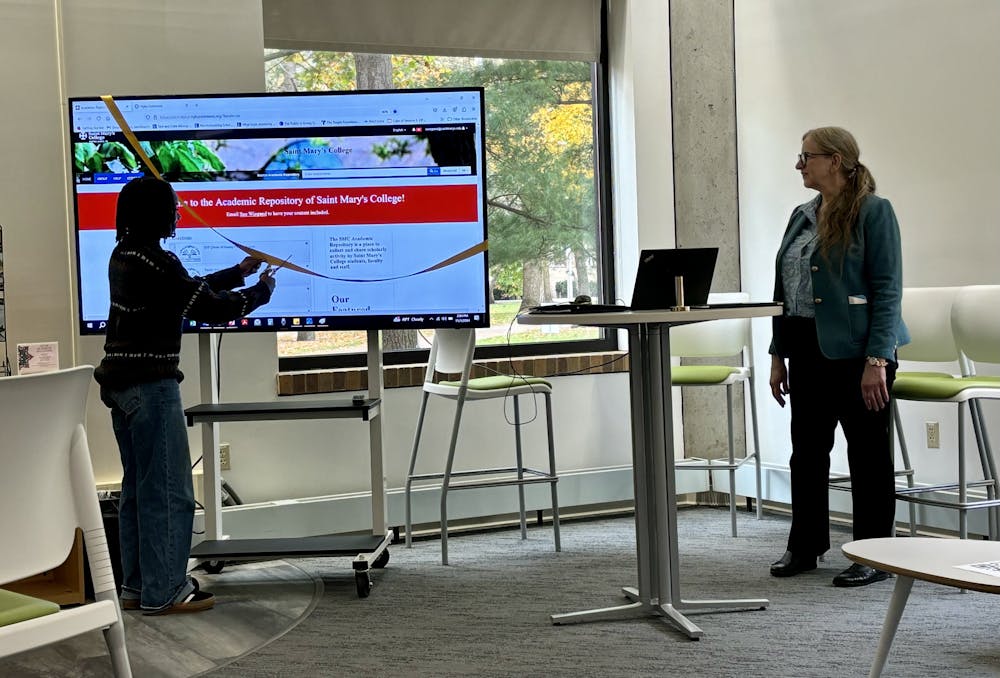The Saint Mary’s Cushwa-Leighton Library hosted a ribbon-cutting ceremony last Friday afternoon for the grand opening of its brand-new academic repository: an institutional archive meant to collect and preserve digital copies of the college’s scholarly outputs.
“The academic repository is a way for us to gather things that we create as a campus community, whether it’s a professor’s article or student presentations, or even some kind of locally important documents such as syllabi,” Joseph Thomas, the director of the Cushwa-Leighton Library, said.
While introducing the new software, Thomas explained periodicals librarian Sue Wiegand was “the driving force” since 2019 in working with the open-source repository system Hyku and the Private Academic Library Network of Indiana [PALNI] to establish such a program at Saint Mary’s.
Though still in its introductory phase, Wiegand used a collection of projects from the Doctor of Nursing Practice program to demonstrate how the repository works. Wiegand explained any student or faculty member would be able to search and access various projects and published pieces sorted by type, department or collection.
Only a few collections are currently available on the website. However, Thomas hopes for the software to be fully operable and useful to students within the next six months to a year.
“The idea is that every department will provide their scholarship, whether student or faculty, [and] make their own collection,” Thomas said.
Other collections the repository currently has available to students include a collection of Dante and an emerging digitized collection of recently-donated Dickens novels. Wiegand mentioned the software can also host video and audio in their archives.
Wiegand focused on relaying the archives are for academic purposes.
“We have open educational resources I’ll be putting in there. I’m hoping to get the SMC symposium put in there, and I’m hoping for podcasts, things like that too. But I think the thing we were looking at is that it should be more scholarly or academic. It’s not like records of the College, recordings of a meeting or something like that,” Wiegand said.
In addition to research, the repository will also become the home to course syllabi for students to access when choosing classes or for applying to graduate programs. Rather than students requesting copies of syllabi from the registrar’s office, they would be able to access them on their own, cutting out the middle person and hopefully making the process easier for both the administration and students. The permission to access the syllabi can be changed by the library or the faculty member based on preference of access.
Wiegand believes this new project for the library will encourage undergraduate research, “turning students into student scholars” instead of consuming commercial research.
“We [are trying] to take what we are doing with our scholarship and send it out into the world [and] distribute it, rather than just consuming what the commercial people would give us in the way of databases and things like that. We are actually turning students into student scholars, as I like to put it. They're going from consumers to creators of knowledge,” Wiegand said.










